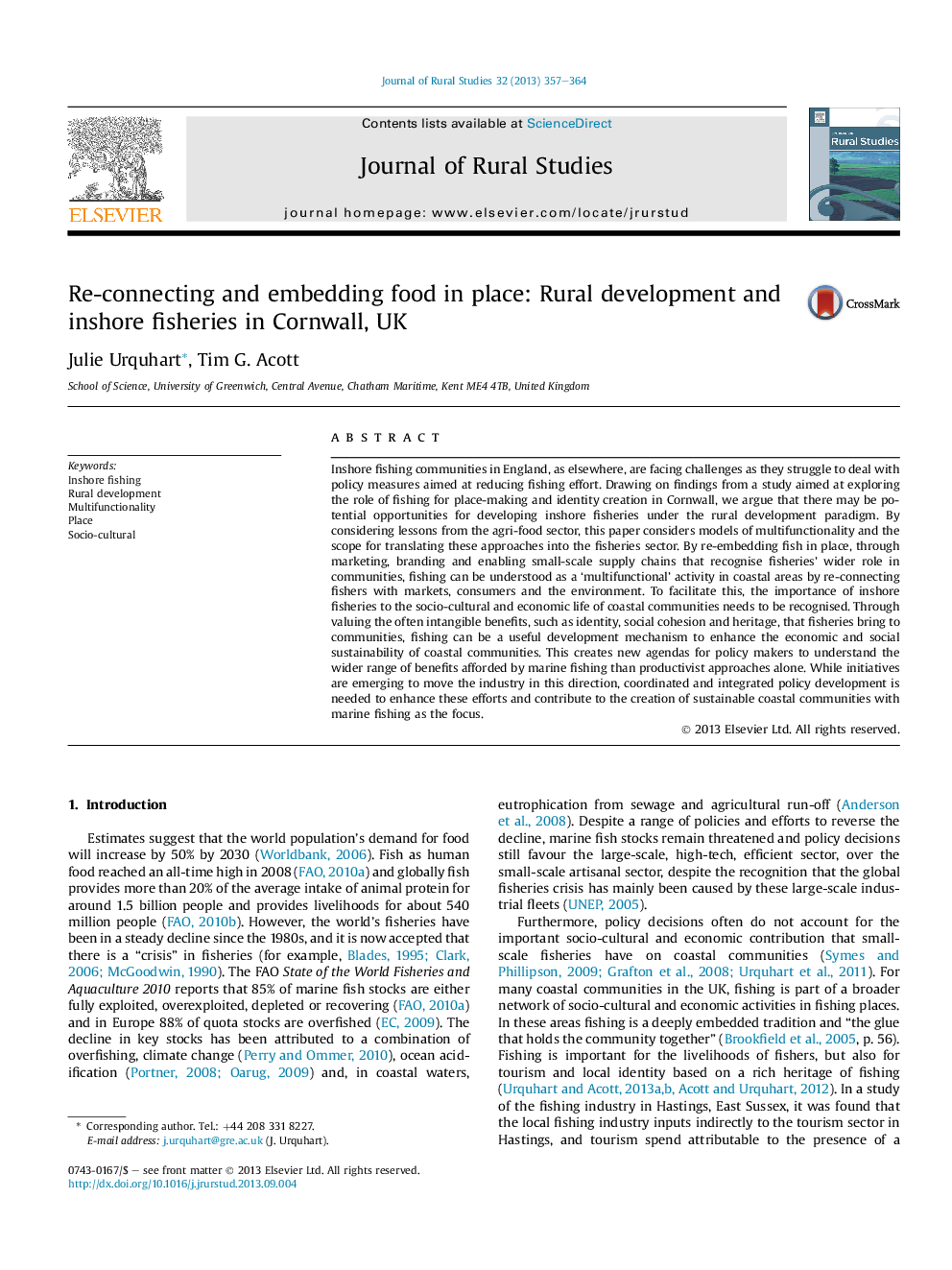| Article ID | Journal | Published Year | Pages | File Type |
|---|---|---|---|---|
| 6545939 | Journal of Rural Studies | 2013 | 8 Pages |
Abstract
Inshore fishing communities in England, as elsewhere, are facing challenges as they struggle to deal with policy measures aimed at reducing fishing effort. Drawing on findings from a study aimed at exploring the role of fishing for place-making and identity creation in Cornwall, we argue that there may be potential opportunities for developing inshore fisheries under the rural development paradigm. By considering lessons from the agri-food sector, this paper considers models of multifunctionality and the scope for translating these approaches into the fisheries sector. By re-embedding fish in place, through marketing, branding and enabling small-scale supply chains that recognise fisheries' wider role in communities, fishing can be understood as a 'multifunctional' activity in coastal areas by re-connecting fishers with markets, consumers and the environment. To facilitate this, the importance of inshore fisheries to the socio-cultural and economic life of coastal communities needs to be recognised. Through valuing the often intangible benefits, such as identity, social cohesion and heritage, that fisheries bring to communities, fishing can be a useful development mechanism to enhance the economic and social sustainability of coastal communities. This creates new agendas for policy makers to understand the wider range of benefits afforded by marine fishing than productivist approaches alone. While initiatives are emerging to move the industry in this direction, coordinated and integrated policy development is needed to enhance these efforts and contribute to the creation of sustainable coastal communities with marine fishing as the focus.
Related Topics
Life Sciences
Agricultural and Biological Sciences
Forestry
Authors
Julie Urquhart, Tim G. Acott,
